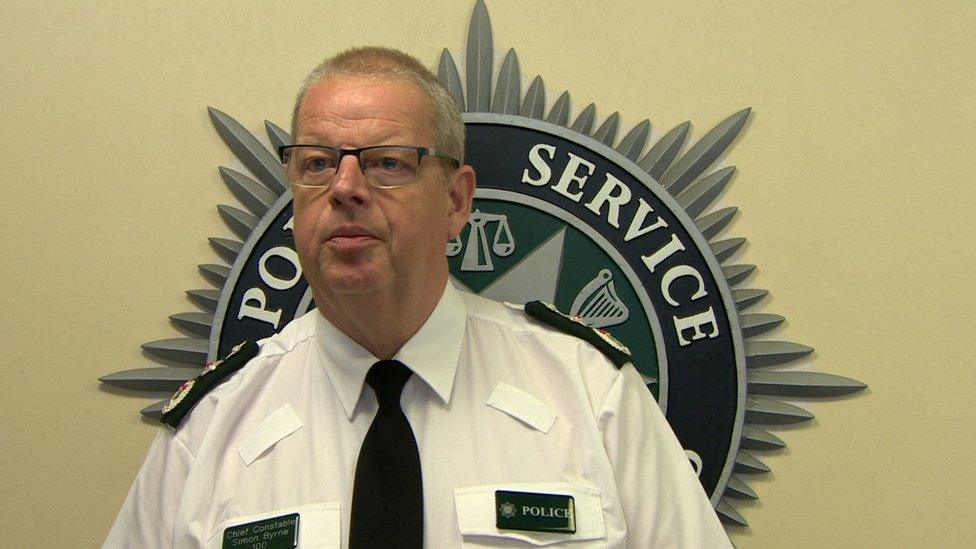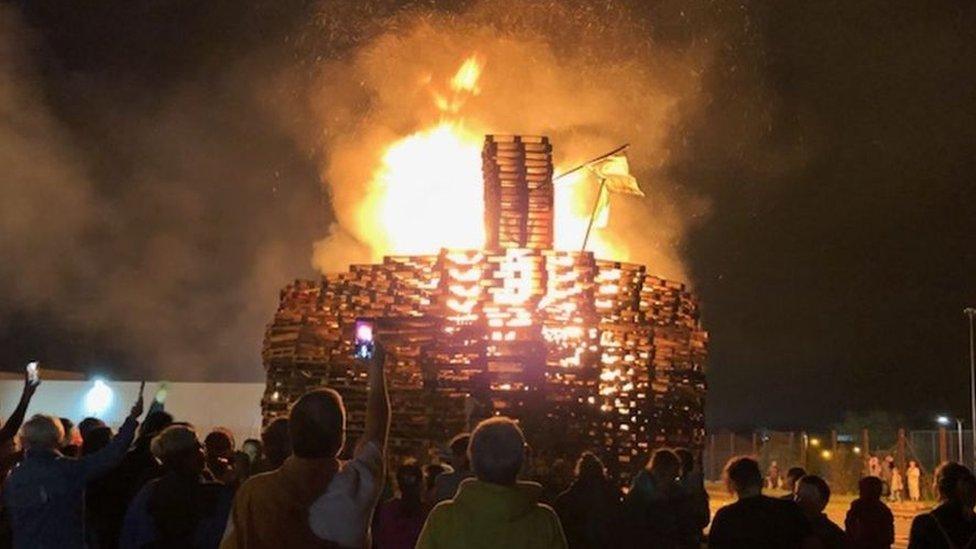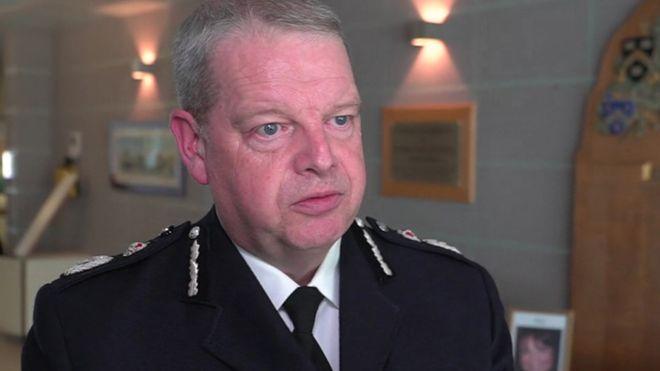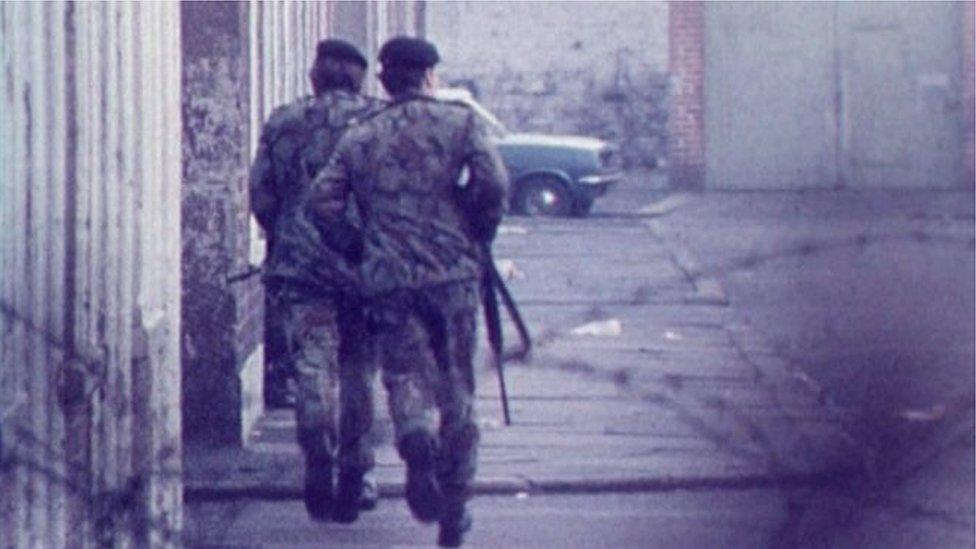Simon Byrne: PSNI chief vows force will 'not tolerate' the UVF
- Published

Simon Byrne took over the top job in the PSNI last month
The PSNI will "not tolerate" the Ulster Volunteer Force (UVF) and will "take it on using all the powers" it has, its new chief constable has said.
Simon Byrne was speaking after a contractor due to remove an Eleventh Night bonfire from Avoniel Leisure Centre in east Belfast pulled out after threats were made.
Police had told Belfast City Council the loyalist paramilitary group was involved with the bonfire.
This was denied by bonfire organisers.
The controversial bonfire beside the east Belfast leisure centre was lit on Thursday night after Belfast City Council gave up on its efforts to remove it.
The council held four emergency meetings about the bonfire but a contractor that was due to remove it pulled out after graffiti threats appeared near the site.
Police have said they would meet council representatives to discuss a complaint about the leak of contractors' details.
Mr Byrne told a press conference on Saturday that "there are no facts that support the notion" that the PSNI (Police Service of Northern Ireland) "leaked any information to anyone else".
He also said the PSNI were "not in cahoots with the UVF, despite some of the inference".

The bonfire at Avoniel Leisure Centre was lit as part of the Eleventh Night celebrations
"We have got things like the paramilitary task force, and other agencies, to take on terrorism and criminality," he added.
"What we saw the other day was a considered and cynical attempt to put us, as in the PSNI, into a dispute between communities."
Mr Byrne said the UVF had been "prepared to put women and children in front of a bonfire in the expectation" the PSNI was going to appear in large numbers.
Brexit 'detrimental' to peace process
"I think it was a cynical ploy and I condemn it," he said.
Mr Byrne was also questioned at the press conference about the potential impact Brexit would have on the peace process in Northern Ireland.
He said he thought a hard Brexit would be "detrimental" to the peace process.
He added that in the short-term the worry was that it "will create a vacuum which becomes a rally call, a recruiting ground for dissident republicans and clearly any rise in their popularity or their capability will be very serious".
Mr Byrne also said if there was a hard border it raised a "whole raft of issues around the potential for smuggling".
Earlier, Mr Byrne told BBC Radio 4's Today programme that a devolved government in Northern Ireland would help police deal with "crimes of today, rather than the past".
He said a historical investigations unit, for Troubles-era cases, could have been the "function" of a Stormont government and that legacy cases can divert PSNI detectives from dealing with day-to-day crime.
Simon Byrne's first day in the job started with media interviews
The devolved executive and assembly collapsed in January 2017.
An historical investigations unit was proposed in the Stormont House agreement in 2014, but its implementation was delayed by the collapse of the power-sharing government and its continued absence.
Last year, Westminster launched a consultation on a draft bill to deal with the legacy proposals and a summary of the 17,000 received responses was published earlier in July.
The government has not yet set out its intentions regarding the draft bill following the consultation.
During the interview, Mr Byrne also addressed various challenges facing the PSNI including:
Ongoing issue of trust in communities, particularly after the recent Glenanne gang case in which the Court of Appeal ruled that a full, independent investigation into alleged collusion must be held
The prosecutions of former soldiers and members of security services, of which Mr Byrne said that the PSNI are servants of the law
The "severe" threat posed by dissident republicans, which Mr Byrne described as "not an accelerated problem" but "an embedded problem"
- Published29 June 2019

- Published5 July 2019
